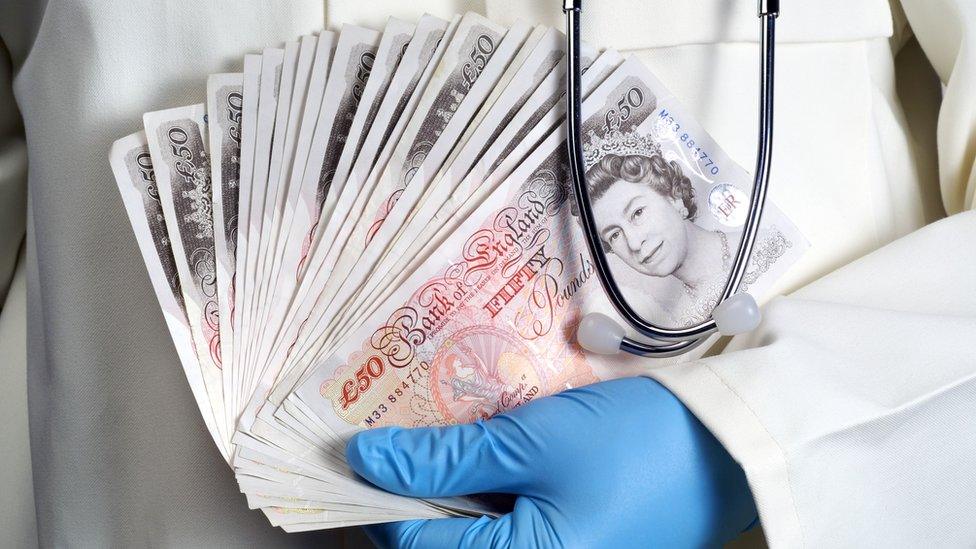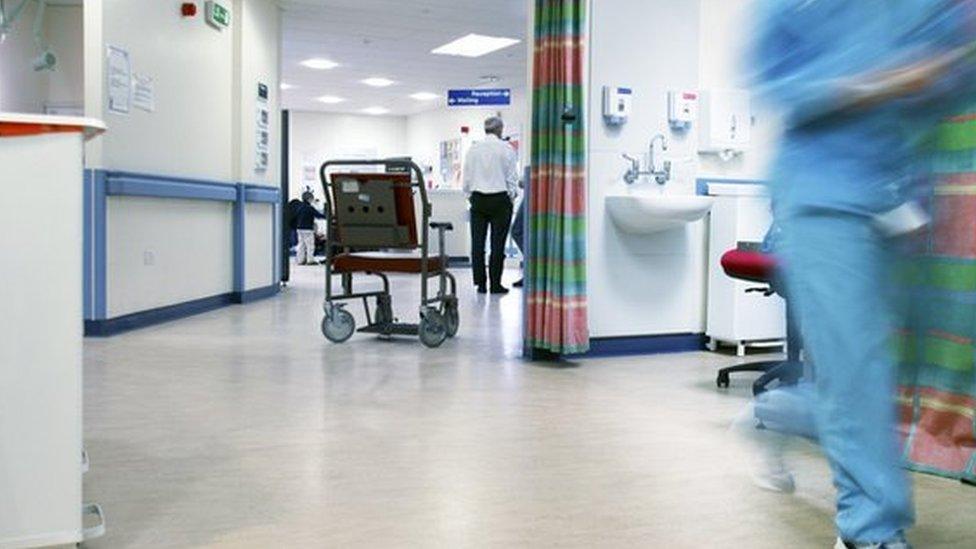Mind the NHS financial 'black hole'
- Published

Hospital trusts at "crisis point", a "huge challenge" to put the NHS on a firmer footing and a potential "black hole" in the finances. These were just some of the bleak conclusions of the Commons Public Accounts Committee on the financial state of the health service in England.
In one sense the findings were not surprising as the Committee was putting its own stamp on a previously published report by the National Audit Office. But the MPs zoned in on one particular aspect of NHS finances which has not had much of an airing - the feasibility of the planned annual £22 billion of efficiency savings which NHS England says must be achieved by 2020 to allow growth in patient demand to be satisfied.
That £22 billion was flagged up by Simon Stevens, chief executive of NHS England, as part of a deal with ministers which would see more than £8 billion above inflation coming from the Government in 2020. But not much has been said since about how those savings might be achieved.
The Committee report says there is "not yet a convincing plan" for the £22 billion. Ministers and NHS leaders argue that "transformation" plans in local communities aimed at giving patients better care closer to home will keep them out of hospital and so save money. But the MPs are sceptical about whether this will generate anything like the required amount of savings.
How to make savings
Lord Carter, the Government's adviser on hospital productivity, believes that £5 billion can be found in 2020 partly by smarter procurement of supplies. But some close to the front line believe this is too optimistic. More savings will come from setting a cap on pay growth, but one senior source in hospital management says the idea that the full £22 billion can be conjured up is "fanciful".
Ministers argue, understandably, that health had a considerably more generous settlement in the spending review than most other departments. An extra £3.8 billion above inflation has been allocated for the financial year beginning in April as well as the promised higher funding in 2020.
A Department of Health spokesperson, responding to the parliamentary committee report, said : "We are intensively supporting challenged trusts to improve finances, while clamping down on rip off staffing agencies and helping hospitals become more efficient by sharing best practice across the service."
But sceptics in the leading hospitals argue that the funding increase for the 2016/17 financial year is enough simply to keep the show on the road. The extra annual allocations for the following few years, they argue, are not enough to keep up with the anticipated surge in patient demand. Extra cash has been pledged in recent weeks for mental health and maternity services and it is not clear how much is left over just to deal with the larger numbers of people needing hospital care.
And then there's the seven-day NHS issue. The Government wants to extend the range of weekend services in hospitals and GP practices in England by the time of the next election. Ministers acknowledge this pledge will come with a price tag. But the doubters ask where that money is coming from.
Prof Jane Dacre, president of the Royal College of Physicians, has argued there are not enough doctors to fill vacancies now, let alone provide the more extensive range of weekend cover planned by the Government.
The Chancellor George Osborne, as he prepared to deliver his Budget, will probably feel exasperated that some in the NHS are calling for even more money so soon after what many hailed as a generous deal in the spending review. But the NHS has to deliver care to a rising and ageing population and questions are increasingly being asked across the service and in parliament about what that care will look like in 2020 on current spending plans.
- Published18 February 2016

- Published25 February 2016
- Published19 February 2016
